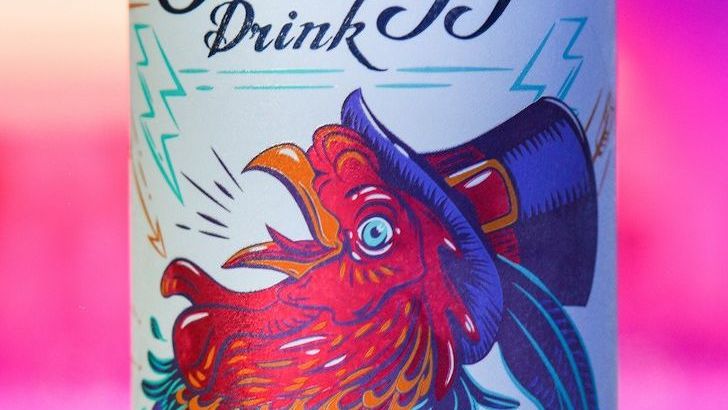Diet Sodas Pack More Hidden Dangers Than Regular Soda

Here’s the plot twist nobody saw coming – those zero-calorie saviors might actually be sabotaging your health worse than their sugary cousins. Studies show that drinking just one diet soda per day may increase the risk of cardiovascular problems including AFib (irregular heartbeat) and high blood pressure. The artificial sweeteners lurking in these drinks don’t just fool your taste buds – they’re playing mind games with your entire body.
Because diet soda is hyper-sweetened, it can trigger cravings for more sweet, high-calorie foods leading to weight gain and belly fat in particular. Your brain receives that sweet signal but doesn’t get the calories it expects, leaving you hungrier and craving more sugary foods throughout the day. It’s like promising your body a meal and then serving it nothing – of course it’s going to rebel. Some research also suggests that those who drink diet soda have higher activity in the area of the brain associated with the desire to consume foods high in fat and sugar.
But wait, it gets worse. The artificial sweeteners in diet soda can trigger an inflammatory response in the body and may worsen joint pain. Meanwhile, your teeth are taking a beating too, as diet sodas often contain phosphoric and citric acids which can erode tooth enamel, leading to tooth sensitivity, pitting of the tooth’s surface and changes to the color of the teeth, giving them a chalky appearance.
Energy Drinks Are Liquid Heart Attacks in a Can

If you think energy drinks are just amped-up sodas with some extra vitamins, think again. These beverages are in a league of their own when it comes to wreaking havoc on your body. The analysis identified nine cases of cardiac arrest, three of which were fatal. This finding comes from a comprehensive 2023 review published in PMC that examined the documented effects of energy drink consumption.
Those who drank the energy drinks were more likely to experience irregular heart rhythms and prolonged elevated blood pressure, leading researchers to believe that ingredients in energy drinks, besides caffeine, may cause negative health outcomes. It’s not just the caffeine that’s the problem – it’s the toxic cocktail of taurine, guarana, and other stimulants that create a perfect storm in your cardiovascular system.
One serving can contain around 40 grams of sugar, surpassing the American Heart Association’s recommended daily limit of added sugar, while the high levels of caffeine can make these beverages worse for your health than soda. The caffeine content in energy drinks is often much greater than your average can of soda, and large amounts of caffeine may cause high blood pressure, alter heart rhythm and heart rate, interfere with digestion, and trigger anxiety and sleeplessness.
The Centers for Disease Control and Prevention reported that in 2007, 1,145 adolescents ages 12 to 17 went to the emergency room for an energy drink-related emergency. In 2011 that number climbed to 1,499. These aren’t just numbers on a page – they’re real kids ending up in hospitals because of what they thought was just a harmless energy boost.
Specialty Coffee Drinks Are Sugar Bombs in Disguise

Your daily Frappuccino habit might be more dangerous than guzzling soda all day. Brace yourself for this shocking comparison: A 12 oz can of coke has 39 grams of sugar while a Venti White Chocolate Mocha with whip has 75 grams – that’s 18 teaspoons of granulated sugar in a medium 20-ounce mocha. Let that sink in. You’d never dump 18 sugar packets into your coffee at home, yet that’s exactly what you’re drinking.
Starbucks Bottled Frappuccino Mocha is essentially a sugar-laden dessert disguised as a coffee beverage, with a staggering 46 grams of sugar – 32 grams of which are added – it delivers more sugar than a typical can of soda. Regular consumption of sugary beverages can contribute to insulin resistance, gut problems, and a greater risk of cardiovascular disorders, as well as an increased risk for type 2 diabetes.
What makes these drinks particularly insidious is their health halo effect. People assume they’re making a better choice than soda because it’s “coffee,” but some drinks contain 132 grams of sugar – that’s five times the recommendation. One drink has 930 calories and 185 grams of sugar – over seven times as much sugar as you should be having for the day, equivalent to 46 teaspoons of sugar, or 14 glazed donuts.
When you drink high calorie beverages, the calories are processed and absorbed very quickly and cause your blood glucose to rise up, or spike, which can increase problems such as insulin resistance, which is associated with type 2 diabetes. Unlike eating solid food, your body doesn’t register liquid calories the same way, leaving you unsatisfied and likely to consume even more calories throughout the day.
Conclusion

The beverage landscape has gotten more treacherous than ever. While you’ve been avoiding regular soda, these three categories of drinks have been quietly doing more damage to your health than you ever imagined. The solution isn’t to go back to regular soda – it’s to recognize that water, unsweetened teas, and black coffee are your safest bets for staying hydrated and healthy.
What do you think about these shocking revelations? Tell us in the comments.






